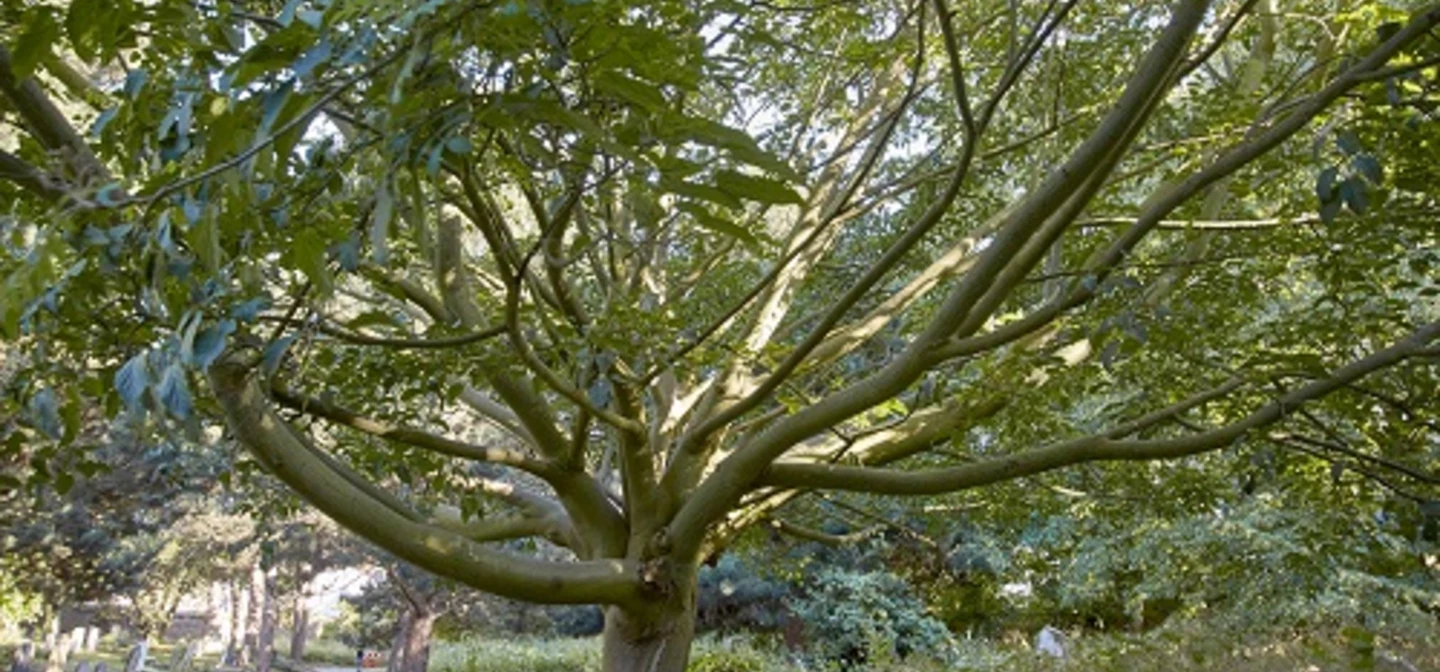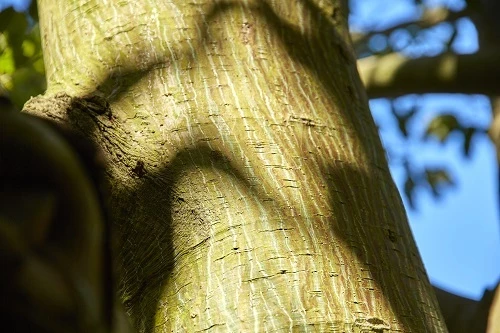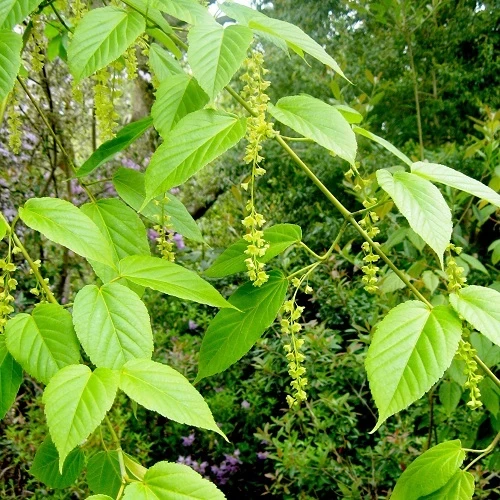
Snake bark maple
A Chinese tree that dresses like a snake and wears vibrant autumn foliage.
Colourful striped bark
Not surprisingly, snake bark maples can be identified by their colourfully striped bark. The leaves also turn spectacular shades of orange and yellow in the autumn.

Origins in Asia
These deciduous trees originate in east Asia, growing between the eastern Himalayas and Japan. They are popular for parks and gardens in this country for their handsome bark, and because they grow quickly at first, and then more slowly as they mature.
Snake bark maples produce delicate strings of yellow flowers in spring. These are followed by pinkish-brown winged seeds, which are spread by the wind.

This particular species is also known as Père David’s maple (Acer davidii). It was discovered in central China in about 1869 by a missionary priest and botanist called Jean Pierre Armand David. A few years later, it was rediscovered and introduced to Britain by Charles Maries, a plant hunter who worked for horticulturalist James Veitch in Chelsea.